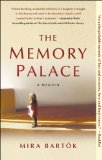Summary | Excerpt | Reading Guide | Reviews | Beyond the book | Read-Alikes | Genres & Themes | Author Bio

Hoarding is a psychological disease that conscripts the afflicted into a self-created squalor. Hoarders compulsively accumulate valueless items and refuse to throw away any junk because they believe the items will be needed or will have value in the future. Hoarding often creates such unfit living conditions that homes may be filled to capacity with only narrow pathways winding through stacks of clutter. In the context of E.L. Doctorow's marvelous new book this behavior seems completely logical.
The Collyer Brothers are the last droplets of a blue blood line. The duo comes of age during the tectonic shift from stuffy Victorian culture to the modern era, forced abruptly into adulthood by the early death of their aristocratic parents. In order to have some control over the rapidly shape-shifting culture, the two men, mostly Langley, aggregate the ephemera and symbols of material progress of the present (everything from newspapers, to radios, to a defunct Model T). Like sleepy spiders trapping buzzing flies in their web, the two lie dormant for years then burst out of their nook to scuttle around New York's surface and collect its treasures. The brothers also inadvertently collect people: a gin joint gangster, black jazz musician, immigrant servants, and eventually a flock of hippies. Though the windows are shuttered and their hallways are clogged with junk, the flow of history somehow manages to ooze into the Collyer home.
Langley, the more obtuse and eccentric of the two, plays occasional ambassador to the outside world. He becomes obsessed with cataloguing the world's events in order to create one 'universal newspaper' that would beat out all other competitors. For five cents, Langley would give his readers a 'portrait in newsprint on our life on earth'. His assessments of cultural phenomena during the 20th century make for some of the best passages in the book. Take, for instance, this description of the Jonestown Massacre:
"They were Americans who had fled there to live in rows of shacks which their leader proposed to them as an idealistic Communist paradise. They had practiced suicide by drinking harmless red liquid in lieu of poison, but when it came time their leader said they could no longer tolerate the repression of the outside world, they did not hesitate to swallow the real thing. All nine hundred of them. I asked Langley, Where do you put this event? He said he thought at first to file it under Fashion, as when everybody is all at once wearing the new color."
The interior textures and moods of the era are left to Homer. Perhaps because he was submerged into blindness before the age of 20, Homer honed sensitivities that Langley did not. Prone to romance and indulgence (as well as self-pity and indolence), Homer plays the emotional stand-in for the 19th century male faced with the anxieties of the modern age - torn between the assurance that his aristocratic background merits an easy life and a swelling urge to lose himself in music, art, and women.
By the end of Homer's life, when the Collyer mansion is converted into a labyrinthine cave filled with newspaper stacks, towering piles of bicycles, and heaps of orange peels, Homer is transformed from a feted Victorian calf to a destitute cripple replete with a modern sense of alienation. In a letter to a journalist (also an object of Homer's infatuation) he writes,
"There are moments when I cannot bear this unremitting consciousness. It knows only itself. The images of things are not the things in themselves. Awake, I am in continuum with my dreams. I feel typewriters, my table, my chair, to have assurance of a solid world, where things take up space, where there is not the endless emptiness of insubstantial thought that leads to nowhere but itself."
Neither one of the brothers ever falls exactly instep with the zeitgeist. They always treat each event as a passing fad and they, dressed in 19th century garb, are treated as a novelty in return. Literally walled off, the brothers reinforce Doctorow's motif of isolation, embodying the modern mood of alienation that permeated 20th century culture. A fantastic feat completed through mundane means.
Interesting Link: Blog: When Books Breed Compassion
![]() This review was originally published in The BookBrowse Review in September 2009, and has been updated for the
October 2010 edition.
Click here to go to this issue.
This review was originally published in The BookBrowse Review in September 2009, and has been updated for the
October 2010 edition.
Click here to go to this issue.

If you liked Homer & Langley, try these:

by Mira Bartok
Published 2011
The Memory Palace is a breathtaking literary memoir about the complex meaning of love, truth, and the capacity for forgiveness among family.

by Elizabeth Gaffney
Published 2006
Captures the splendor and violence of New York in the years after the Civil War, as young immigrants climb out of urban chaos and into the American dream.
Your guide toexceptional books
BookBrowse seeks out and recommends the best in contemporary fiction and nonfiction—books that not only engage and entertain but also deepen our understanding of ourselves and the world around us.